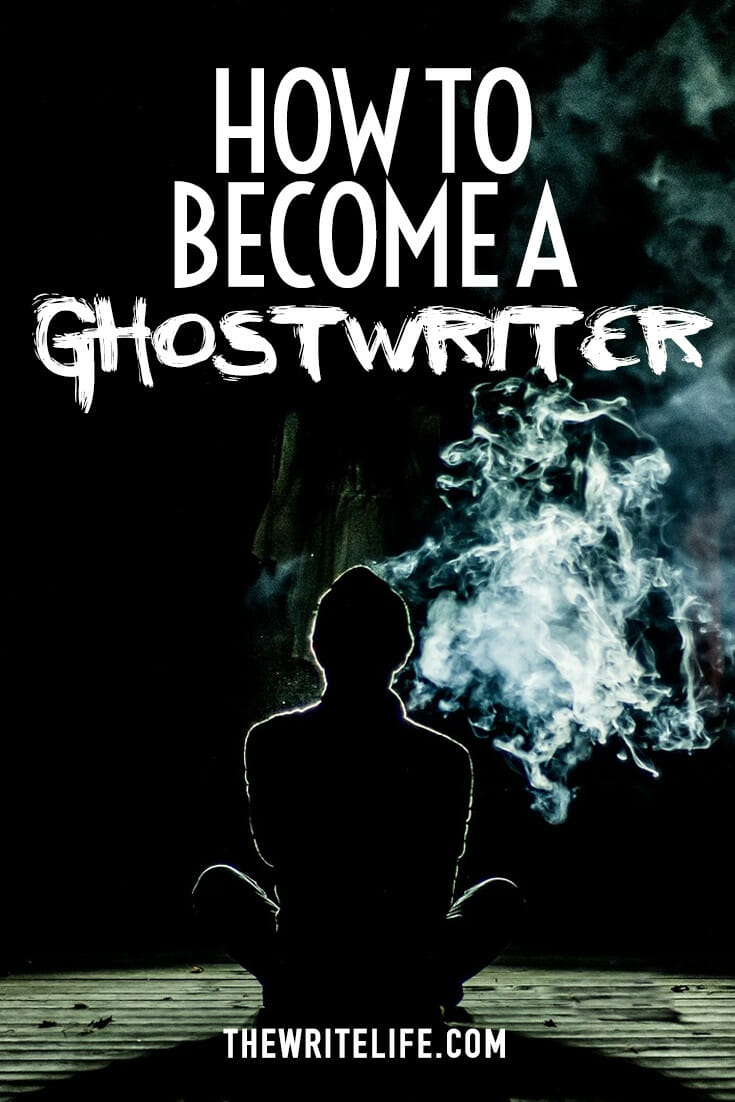Thomas Jefferson might as well have been describing how to break into ghostwriting when he wrote, “I’m a great believer in luck, and I find the harder I work the more I have of it.”
In the summer of 2014, I quit my job to pursue full-time self-employment as an author and editor. Knowing that a majority of my income would likely not come from my books, I focused on seeking editing work.
In less than a year, I shifted my focus to ghostwriting, a professional avenue I thought would be forever closed to me because I simply didn’t have the connections. I knew no celebrities, political figures or rich business types, but I did have three key assets: experience, patience and luck.
This isn’t just my story either. In taking an informal poll of online connections who also ghostwrite books, common threads of experience, patience and luck wove through every story of how they first got paid to help other people tell their stories.
Why you should consider ghostwriting jobs
Before I cover the practical aspects of how to become a ghostwriter, let’s consider why you should add “Ghostwriter” to your writing services:
- You’ll get paid upfront. No more waiting on royalties like you would for writing your own books!
- It’s lucrative. With the right clients, you can earn substantially more than other writing services you provide.
- No need for marketing. Because your name isn’t on the book, you don’t have to do any marketing to sell the book, which means you can proceed to the next project ASAP. Authors who don’t enjoy marketing often see this as even more beneficial than how much they earn from ghostwriting projects. (Unfortunately, you will still have to market yourself to get clients, but that’s content for another post.)
- You can keep emotional distance. Because the book is not your own child, you’ll be able to see its strengths and weaknesses clearly, bringing a helpful perspective to the client.
- The subject matter is fascinating. When you choose the right clients, you learn as you write: about other people’s lives, their professions and industries you otherwise might not come across.
- It will help you write better. Ghostwriting consistently challenges your writing skills. If you’ve ever had trouble meeting your daily word count goals, try ghostwriting a book for a client who has already paid you!
With those considerations in mind, it’s little wonder that writers want to know how to break into ghostwriting, but the process isn’t easy or fast. Becoming a ghostwriter is equal parts patience, determination, experience, confidence, marketing, and, well, luck.
It’s that last part that most aspiring ghostwriters don’t want to hear, but it’s true — and we’ll get to why luck is a necessary ingredient in a moment.
How to become a ghostwriter
So how do you get started in this lucrative profession?
Here are some tips for how to become a ghostwriter.
1. Gain experience
Journal. Blog. Guest post. Write for publications like The Write Life. Send letters to the editor. Make insightful comments on websites. Self-publish a book (properly edited, of course). Create a family email newsletter. In whatever ways you can, write, write, and write some more.
And don’t forget to read. “If you don’t have time to read, you don’t have the time (or the tools) to write,” Stephen King wrote. “Simple as that.”
Read high-brow, low-brow, classics, and today’s popular books. Alternate between fiction and nonfiction — nonfiction authors must know how to tell a compelling story. Read the best books on writing and storytelling, like King’s On Writing and McKee’s Story.
Put in your 10,000 hours of reading and writing. Earn the right to write for others.
2. Be patient
Ten thousand hours is 1.14 years, but that means you’d have to be doing that one single thing every hour of every day. Let’s say that five days a week you read for an hour per day and write for two hours per day, a generous assumption for most writers with full-time responsibilities outside of writing. At that rate, it will take you 12.8 years to become an expert writer.
My story witnesses to this Gladwellian opinion. I began to take my writing seriously as a freshman in college at the age of 18. Every one of my post-college jobs was related to reading or writing, but I also suffered serious doubts about my abilities and so let the blinking cursor blink for long stretches at a time. Sixteen years later, I was offered my first ghostwriting gig.
By no means do I believe myself an expert. Hemingway, who one could argue was an expert, said it well: “We are all apprentices in a craft where no one ever becomes a master.”
Patience doesn’t mean biding your time until the right person contacts you. Patience means constant practice until you’re ready for the right person to contact you.

3. Prove yourself…and then get lucky
Of the six online ghostwriters who responded to my question about how they broke into ghostwriting, every single one said they’d been working on smaller writing projects before “getting lucky” and breaking into ghostwriting:
- Mike Loomis started in multimedia curriculum development and book and product marketing before realizing he could help authors through offering ghostwriting services.
- Pat Springle wrote for two organizations who loved what he produced and helped others finish their manuscripts before launching into a successful 20-year career as a ghostwriter.
- Alice Sullivan wrote web and magazine copy for Country Music Television (CMT) during an internship before being asked by a major publisher to ghostwrite two books.
In my case, I proofread bills and laws for the Texas Senate, directed communications for a large church, wrote copy for a law firm, edited a content marketing website, and became a self-employed editor before breaking into ghostwriting through a fortuitous referral. At the time, I thought I was lucky to have earned the opportunity to write for someone else and be paid for it.
That job has led to two more direct referrals, which makes me feel even luckier to have been granted that first step into the world of ghostwriting.
But before getting lucky, I gained experience and practiced patience. The luck would never have been achieved without them.
Perhaps this quiz can help you decide.
This is an updated version of a story that was previously published. We update our posts as often as possible to ensure they’re useful for our readers.
Photo via GuadiLab / Shutterstock







